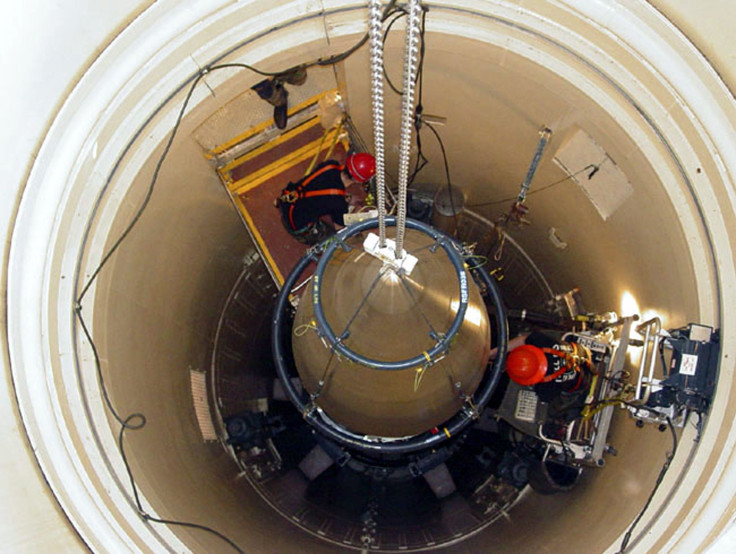Nuclear Arsenal By Country: Map Shows Which Countries Own Warheads [CHART]

Iran's pursuit of a nuclear weapons program has attracted significant attention over the past 18 months of negotiations that finally culminated in a deal Tuesday between Iran and the group of nations known as the P5+1. But a handful of other countries have nuclear arsenals that are far more robust than Iran's clandestine attempts to build its own.
Leading these countries are Russia and the United States, with 7,500 and 7,200 nuclear warheads, respectively, according to the International Campaign to Abolish Nuclear Weapons. The ground found that the United States spends more money on its nuclear weapons than all other countries put together.
France and China follow, with 300 warheads and 250 warheads, respectively. The United Kingdom has 215, Pakistan has 100 to 120 warheads, and India has anywhere from 90 to 110 of them. The distribution of the world's 15,700 nuclear warheads is laid out below:
Israel, which has vocally and staunchly opposed negotiations for a nuclear deal with Iran, is widely believed to possess its own nuclear weapons, although the country does not acknowledge its arsenal. After a deal was struck, Israeli Prime Minister Benjamin Netanyahu warned that Iran had been handed a "sure path" to nuclear weapons," adding, "This is a bad mistake of historic proportions." Israel's own its unconfirmed arsenal makes it the only country in the Middle East with nuclear capabilities.
North Korea was also believed to be pursuing a nuclear weapons program to develop up to ten warheads, but experts say it cannot yet deploy them, CNN has reported.
Iran's civilian nuclear program dates back to the 1950s, and in 1968, by signing the Nuclear Non-Proliferation Treaty, it agreed not to acquire nuclear weapons. However, by the end of the 1970s, the United States began to suspect that Iran sought to build a nuclear weapon, according to a timeline compiled by the New York Times. In 2002, an Iranian dissident shared documents that exposed a secret Iranian nuclear program that appeared to be suspended in 2003, even as uranium enrichment continued sporadically and Iran was suspected of continuing activities to develop a nuclear weapon.
The deal reached early Tuesday would lift sanctions imposed by the West on Iran in exchange for limits on its nuclear program.
© Copyright IBTimes 2024. All rights reserved.












